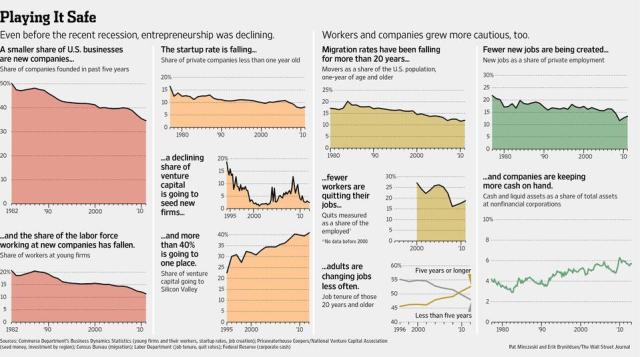A friend forwarded me this great article from Jesse Lipson at Forbes, applying Taleb’s concept of antifragility to business. The author encourages entrepreneurs to cultivate a work environment where people will “embrace volatility,” “fail frequently in small ways,” and “build back even stronger.”
“So in Antifragile,” writes Lipson,
Taleb suggests we stop trying to predict the future and focus on protecting against something that we can more easily measure: fragility. Something is fragile if it breaks with small changes in the environment: a wine glass shatters if you drop it; it’s fragile. If an object or system can withstand large changes, it’s resilient. A system is antifragile if it actually thrives on chaos, growing stronger when the unexpected occurs.
It’s like weightlifting: Your company is antifragile when it’s composed of more muscle than bone. Yes, bones can recover from a break, but often in a weakened state. A muscle is strengthened by damage. Weightlifters build muscle by pushing it past the limit. A stressed muscle is riven with tiny tears and, as the muscle repairs itself, it actually rebuilds stronger and bigger than before.
This morning, I forwarded the article along to some other entrepreneurs, and one responded thusly (I paraphrase):
Thinking about this, we should never have 100% client satisfaction. We should be doing little experiments all the time, and experiencing little failures here and there, with the result being that a small percentage of clients isn’t happy. If we don’t do that, none of our clients will ever be ecstatic.
I love that observation, even as someone who makes a living monitoring customer satisfaction. If 100% of our clients will recommend us, then we’re never failing to meet expectations, and that suggests we’re not taking enough small risks to keep driving our business forward in an enduring (and antifragile) way.
